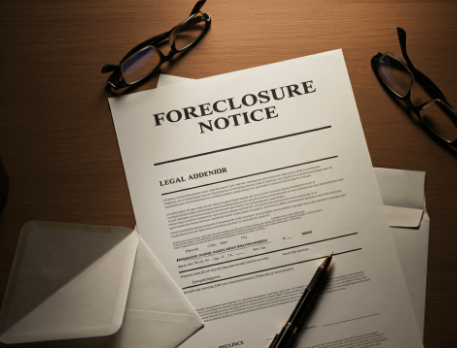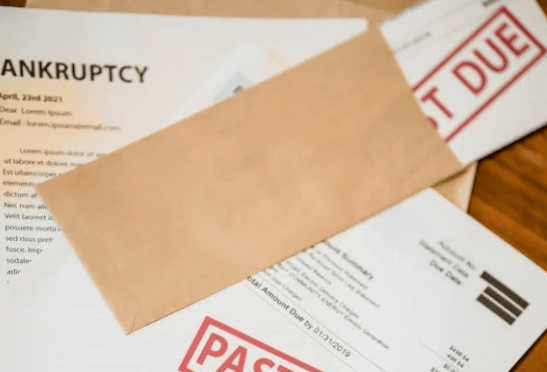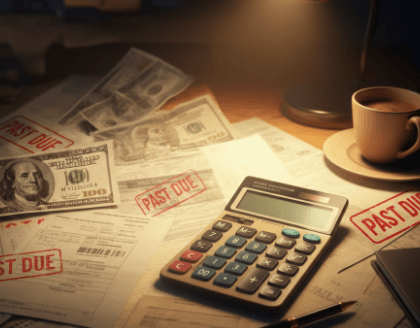Dealing with foreclosure can be a daunting and stressful experience that can leave many homeowners feeling lost and uncertain about their future. However, there are strategies and options available that can help you remain in your home even after foreclosure proceedings have begun. This blog aims to navigate you through the intricacies of foreclosure laws in Florida and provide practical steps on “How to stay in my home after foreclosure.” Whether you’re dealing with missed mortgage payments or already in the midst of foreclosure, having a clear grasp of your rights and available options can be truly transformative. Read on to discover effective ways on “How to stay in my home after foreclosure” and protect your cherished residence.
Real estate investors Steve Daria and Joleigh have extensive experience assisting homeowners facing foreclosure. Their expertise in navigating Florida’s foreclosure laws has helped many retain their homes. By leveraging their knowledge and resources, Steve Daria and Joleigh can offer invaluable guidance on “How to stay in my home after foreclosure” in Florida.
Understanding Foreclosure in Florida
Before discussing “How to stay in my home after foreclosure,” it’s essential to understand that foreclosure is a lawful process where a lender takes authority over a property because the homeowner has missed mortgage payments.
In Florida, this is typically a judicial process, meaning it goes through the courts.
Understanding the timeline and procedures involved is crucial for anyone facing foreclosure.

The Judicial Foreclosure Process
In Florida’s judicial foreclosure process, the lender initiates the proceedings by filing a lawsuit against the homeowner.
Upon receiving a summons, the homeowner has 20 days to file a response; failure to do so can result in the court granting a default judgment to the lender, effectively allowing the foreclosure to proceed uncontested.
Following the court’s final judgment, a sale date is scheduled for the property to be auctioned, marking the culmination of the foreclosure process unless the homeowner takes further legal action or reaches an agreement with the lender.
Timeline of a Foreclosure
The foreclosure process in Florida is complex and can span several months to over a year, influenced by court schedules and the defenses raised by homeowners.
Initially, the lender must file a lawsuit, and the homeowner is given 20 days to respond, which can extend the process if they choose to contest the foreclosure.
If the homeowner does not respond or loses the case, the court will release a final judgment of foreclosure.
Following this, the property is scheduled for auction, but even after the auction, the homeowner may have a right of redemption period to claim back their property by paying the full amount owed.
Importance of Legal Representation
Having legal representation can make a notable difference in the outcome of a foreclosure case.
An experienced attorney can provide guidance, represent homeowners in court, and explore all available options to delay or prevent foreclosure.
Legal representation can be important in navigating the complexities of foreclosure law and ensuring that homeowners’ rights are protected.
Get An Offer Today, Sell In A Matter Of Days
Strategies to Stay in After Foreclosure in Florida
How to stay in my home after foreclosure? Here are some strategies that can help homeowners legally remain in their properties.
Loan Modification
A loan modification involves revising the terms of your mortgage to make it more manageable.
This could include decreasing the interest rate, extending the term, or reducing the principal balance.
Many lenders are open to negotiate a loan modification to avoid the expense and hassle of foreclosure.
Forbearance Agreement
A forbearance agreement is a short-term agreement in which the lender consents to reduce or stop mortgage payments for a period.
This can provide homeowners with the breathing room needed to get back on their feet financially and eventually resume regular payments.
Bankruptcy Filing
Filing for bankruptcy can halt the foreclosure procedure temporarily.
Under Chapter 13 bankruptcy, homeowners may be able to reorganize their debts and make a repayment plan to catch up on missed mortgage settlements.

The Role of Mediation in Foreclosure
How to stay in my home after foreclosure? Mediation can be a valuable strategy for homeowners facing foreclosure.
Benefits of Mediation
- Gives a less adversarial and more collaborative environment for resolving foreclosure issues.
- Often results in more flexible and creative solutions compared to court-imposed judgments.
- Helps both parties communicate more effectively and understand each other’s positions.
How to Request Mediation
Homeowners can request mediation through the court system.
It’s essential to act quickly, as mediation must be requested early in the foreclosure process.
The court may offer mediation programs, or homeowners can seek private mediation services.
Potential Outcomes
Successful mediation can lead to various outcomes that benefit both the homeowner and the lender, such as:
- Loan modifications
- Repayment plans
- Other agreements that allow homeowners to stay in their homes while addressing the lender’s concerns
Practical Tips for Homeowners Facing Foreclosure
Facing foreclosure is daunting, but there are practical steps homeowners can take to improve their situation and increase their chances of staying in their homes.
Communicate with Your Lender
Open communication with your lender is crucial.
Many lenders are willing to work with homeowners to find solutions that avoid foreclosure.
Informing your lender of your financial difficulties and exploring options like loan modifications or forbearance agreements can be beneficial.
Keep Detailed Records
Maintain detailed records of all transactions with your lender, court documents, and any agreements made.
These records can be invaluable if you need to contest the foreclosure or negotiate new terms.
Seek Professional Help
Consulting with a foreclosure attorney or housing counselor can provide valuable insights and assistance.
These experts can assist you understand your rights, explore options, and represent you in deals or court proceedings.
Conclusion
Answering the question, “How to stay in my home after foreclosure?” is challenging but not impossible. By understanding the foreclosure procedure, exploring available strategies, and seeking professional help, homeowners can increase their possibility of finding a solution that allows them to remain in their properties.
For those looking to explore more personalized solutions and professional guidance, consider reaching out to a foreclosure attorney or housing counselor. These experts can provide the support and knowledge needed to help you stay in after foreclosure in Florida.
**NOTICE: Please note that the content presented in this post is intended solely for informational and educational purposes. It should not be construed as legal or financial advice or relied upon as a replacement for consultation with a qualified attorney or CPA. For specific guidance on legal or financial matters, readers are encouraged to seek professional assistance from an attorney, CPA, or other appropriate professional regarding the subject matter.

